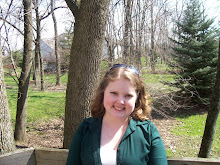A piece from mercurynews.com about how many see JP II's actions in the sex abuse scandal as insufficient; commentary throughout....here are the choice bits: (yes, I'm still working on linking...sorry)
...the pope never apologized for the most shocking behavior that came to light on his watch: sexual abuse of children by priests and the church's attempts to hush it up. To some victims, that is a puzzling omission and a deep stain on his legacy.
``I would hate to see all the good works this pope has done over his lifetime be overshadowed by this scandal. But that's what may happen,'' said Gary Bergeron of Lowell, Mass., who says he was molested in the 1970s by the Rev. Joseph Birmingham, a priest accused of abusing more than a dozen altar boys. Birmingham has since died.
I really don't think that all JP II gave us, with his vast writing on theology and doctrine, and all his good works, will be overshadowed by something that happened in the twilight of his papacy. But that could just be me.
John Paul's defenders contend that sexual misconduct by priests is a worldwide problem that began before he became pope in 1978. They say that once it came to light, he reacted decisively. Summoning America's cardinals to the Vatican in April 2002, he declared that ``there is no place in the priesthood and religious life for those who would harm the young.''
But victims' advocates argue that John Paul could have done more, and they hope his successor will set a new tone, beginning with a straightforward apology to victims.
Um, what exactly did they want him to do? Yeah, he's pope, but he leaves a lot up to the bishops. If you've got a beef, I think you start in your local dioceses. But this is just what people do with the presidency, as well--start at the top, even if the top had nothing to do with it, and can't really do anything but say, "hey, this isn't kosher, and this is what I want to happen." He may have infalliability, but he can't strong-arm the bishops into obeying him. We've seen that time again, with many popes, including B XVI.
For five days that March, the Bergerons literally knocked on Vatican doors. Eventually they saw an official from the papal secretary of state's office. John Paul never met with them or any other known victims.
Still churchgoing Catholics, the Bergerons said they believe that the pope was kept in the dark by his aides. ``It's almost like a movie-star complex where they don't let them read the bad press,'' Gary Bergeron said.
Others are more harsh in their judgments.
``I would say there's a significant amount of responsibility in the lap of the papacy for the sexual-abuse crisis, not only in the United States but around the world,'' said the Rev. Thomas Doyle, a former Air Force chaplain who has counseled many victims and advised them on lawsuits against the church. ``Given that the Vatican insists on hierarchical authority and micromanagement, I think they have to take responsibility.''
...John Paul did not speak publicly about sexual abuse by priests until eight years later, after a furor over another pedophile priest, James Porter, who had more than 100 alleged victims in Fall River, Mass.
I'm sorry, but you just can't go and meet a prominent religious/political figure without some advance notice or an appointment. I know that sounds harsh, but I can tell you from working in government that you just can't do it. There are schedules to keep and things to do. I don't know what people are thinking when they make these trips and just expect to see the Top Dog without any sort of warning. Be lucky that anyone saw you at all.
And as for the "significant amount of responsibility in the lap of the papacy" for all this, I don't know where he gets that. Yes, the Vatican has hierarchical authority--so does the U.S. Government, to an extent. But that doesn't mean that the man at the top is responsible for everything that happens under his watch. It's just not fair to expect that. See my point above.
Addressing a group of visiting U.S. bishops in Rome in 1993, the pope said he shared their ``sadness and disappointment when those entrusted with the ministry fail in their commitment, becoming a cause of public scandal.'' Much of his message, however, was an attack on ``sensationalism'' in the news media, leaving the strong impression that he believed that the sex-abuse problem was exaggerated in America.
``Woe to societies where scandal becomes an everyday event,'' he said.
Nevertheless, at the request of U.S. bishops, the pope in 1994 changed church law in the United States to lengthen the statute of limitations on accusations of sexual abuse to 10 years from the victim's 18th birthday. Previously, it had been five years from the date of the offense.
In 2002, a fresh scandal erupted when a Boston judge released church documents showing that Cardinal Bernard Law and his assistant bishops had secretly shuffled abusers from parish to parish. In response, John Paul amended canon law again by accepting the bishops' zero-tolerance policy, though only after Vatican officials insisted on changes to protect the due-process rights of accused priests. Law later resigned under pressure.
In recent years, the pontiff also condemned sexual abuse more directly and forcefully. In his address to U.S. cardinals in April 2002, he said it was ``rightly considered a crime by society'' as well as ``an appalling sin in the eyes of God.''
``To the victims and their families, wherever they may be, I express my profound sense of solidarity and concern,'' he added. It was the closest he came to an apology.
OK, so we amend canon law and make changes. Yet that's not enough. my question is, what would be enough?
To many victims and their families, the pope's actions fell short. Under John Paul, they contend, the Vatican was more aggressive about stamping out dissent within the priesthood over birth control than it was about protecting children.
``Everyone blames the bishops, but the pope's the one who picks them,'' Doyle said.
Papal biographer George Weigel argues that the critics' portrayal of an uncaring John Paul is wrong. He said John Paul was ``deeply, deeply grieved'' by the unholy actions of supposedly holy men.
Yes, the pope picks the bishops. Can anyone really believe that JP II picked bishops that he knew would cause trouble or cover things up? That's a little far-fetched. Let's get real.
My real question about all this is what do victims want from the Church? Is it justice? Probably, but at the same time, how are they going to get it? The statute of limitations has long since expired on many criminal cases for victims who are now adults, and their only recourse in civil action, which is essentially suing the church. How is that fair to the diocese now, many of which are headed by Bishops who had nothing to do with the scandals in their dioceses? And there's no way to prove anything after so long because most of the priests are dead, relocated, or retired. I'm not being flippant--I'd like to know what victims really expect. Of course I feel empathetic. I cannot imagine having my trust in a man of God betrayed that way. Yet there's a limit to what the Church can give them. Just like there's a limit to what the Pope can do.
Subscribe to:
Post Comments (Atom)



1 comment:
Hello,
I was on google out blogging. Your BLOG seems such a very good one.
Hmm... I just described your BLOG and will take a deeper look to your posts.
Regards,
BLOG
Post a Comment